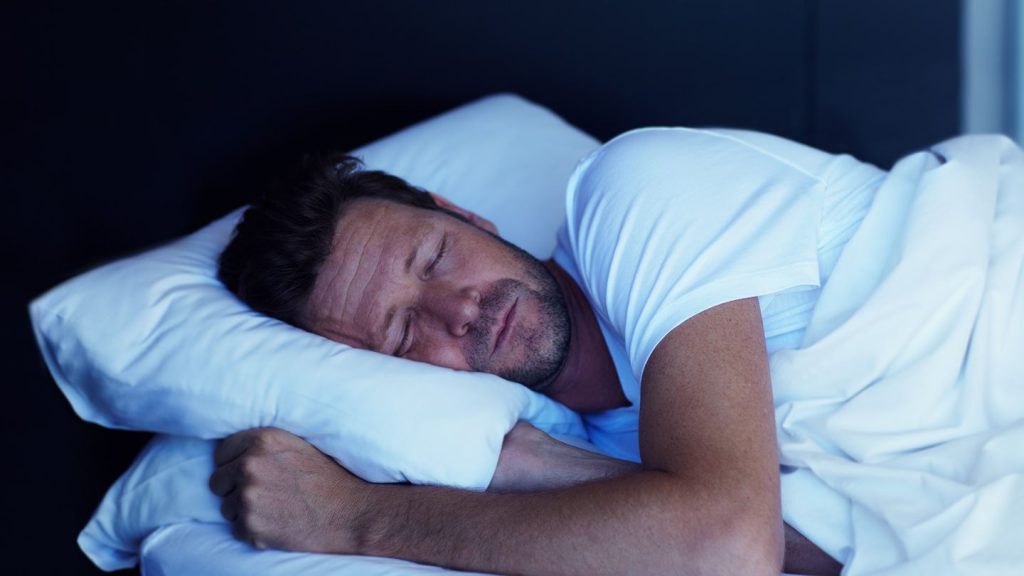
Sleeping Tips for Better Rest After Gastric Sleeve Surgery
Sleep is one of the most critical yet underrated factors in recovery following bariatric procedures. After your operation, your body enters a period of intense healing, where quality rest influences everything from tissue repair to energy levels. Many patients underestimate how, how to sleep after gastric sleeve surgery directly affects the speed and comfort of their recovery process.
How to Sleep After Gastric Sleeve
In the initial recovery phase, comfort and positioning go hand in hand. You’ll likely spend the first few nights sleeping in a reclined or semi-upright position. This posture alleviates abdominal pressure and reduces acid reflux. Placing pillows under your knees or behind your back can enhance support. Finding how to sleep after gastric sleeve properly helps regulate breathing and decreases pain while allowing incisions to heal without strain.
Shortly after surgery, many patients wonder: how long until I can return to work? The recovery time to get back to work depends on the type of procedure (gastric bypass vs sleeve), how invasive the surgery was, and your overall health. For less strenuous jobs, many people go back in 2–4 weeks; for physically demanding roles, it could be 6–8 weeks or more.
Can I Sleep on My Side After Gastric Sleeve Surgery?
Patients often ask, can you sleep on your side after gastric sleeve surgery? Yes, but only when your surgeon gives the green light, typically within one to two weeks after surgery. Early side sleeping without clearance can strain your healing abdomen. Once permitted, use a supportive pillow between your knees and under your torso for balance. Switching sides every few hours prevents pressure buildup and ensures even circulation, promoting faster recovery.
Can I Sleep on My Left Side After Gastric Sleeve?
For most patients, left-side sleeping is considered one of the most comfortable and physiologically beneficial positions after surgery. It promotes digestive flow and supports circulation, reducing discomfort from bloating or trapped gas. The answer to can I sleep on my left side after gastric sleeve is yes, but start gradually. Support your abdomen with a pillow and avoid sharp turns that could stress your incision areas.
Understanding the timeline for gastric sleeve recovery is central to planning your return. In the first few days you’ll rest, manage discomfort, and begin walking lightly. By weeks 1–2, your activity increases, and you shift from liquids to pureed foods. Between weeks 3–6, patients often resume more regular mobility and simple tasks. By month 2–3, many feel robust enough to reflect normal routines , though heavy lifting and vigorous activity may still be restricted.
Can I Sleep on My Right Side After Gastric Sleeve?
If you’re a natural right-side sleeper, you might ask, can I sleep on my right side after gastric sleeve? It’s generally safe after a few weeks but may initially cause mild reflux. Because the stomach sits slightly to the left, right-side sleeping can increase acid exposure early on. Use an elevated pillow or wedge cushion to counteract this. As healing advances, right-side sleeping can become as comfortable as the left.
Best Way to Sleep After Gastric Sleeve
The best way to sleep after gastric sleeve depends on your recovery stage. During the first week, reclined or upright sleeping prevents pressure and discomfort. As your body adapts, transitioning to your side can improve circulation and spinal alignment. Avoid lying flat or on your stomach until cleared by your surgeon, this position can hinder healing and place unnecessary strain on the abdomen. Proper sleep posture directly supports smoother recovery outcomes.
How to Sleep After Gastric Sleeve Surgery: Practical Tips for Comfort

Even small changes in your environment or habits can improve sleep quality. Here are evidence-based ways to optimize rest during recovery:
- Use extra pillows to support your spine, knees, and sides.
- Elevate your torso slightly to minimize reflux and promote breathing comfort.
- Avoid eating or drinking right before bed, especially within two hours of lying down.
- Create a calm sleep environment, dim lights, silence, and a cool room aid deeper rest.
- Follow a consistent schedule to help your body adjust to post-surgery fatigue patterns.
For those considering or undergoing gastric bypass, a common question is how long the surgery takes itself. Gastric bypass procedures generally require 2–4 hours in the operating room, depending on the patient’s anatomy, complexity of the case, and surgical team’s experience. Surgical time impacts the length of anesthesia, immediate recovery demands, and early discharge timing.
Can You Sleep on Your Side After Gastric Sleeve Surgery Without Pain?
As the body heals, most patients can comfortably rest on their sides two to three weeks after surgery. If you still experience mild soreness, that’s normal, internal healing takes longer than external incision recovery. Over-the-counter pain relief or repositioning pillows can help. The key to how to sleep after gastric sleeve surgery safely is listening to your body’s signals and adjusting gradually to avoid strain.
When to Resume Normal Sleeping Habits
By weeks four to six, most people return to their regular sleeping habits. However, continue avoiding stomach sleeping until your surgeon confirms full recovery. Maintaining a supportive mattress and pillow setup ensures spinal alignment and ongoing comfort as your weight decreases and body shape changes.
When to Contact Your Surgeon

If sleeping remains uncomfortable or you experience shortness of breath, persistent reflux, or incision pain, notify your medical team immediately. Adjustments such as body wedges, recliner use, or mild medication may be recommended to improve rest quality.
Final Thoughts
Healing after gastric sleeve surgery goes beyond dietary adjustments—it’s about learning how to rest and recover effectively. Understanding how to sleep after gastric sleeve surgery plays a vital role in minimizing discomfort, preventing reflux, and promoting faster recovery. From side-sleeping strategies to postural support, adopting proper rest habits directly enhances your healing process and overall well-being.
At Ascension Saint Agnes, patients undergoing gastric sleeve surgery in Maryland receive personalized recovery guidance that includes proper sleeping positions and rest techniques. Post-surgery healing depends not just on diet or physical activity but on how well your body recuperates each night. Our medical professionals emphasize structured sleep positioning to reduce strain on the abdomen, support incision healing, and ensure optimal digestive comfort throughout recovery.
Frequently Asked Questions
How long should I sleep in a reclined position after gastric sleeve surgery?
Most patients find it beneficial to sleep in a reclined or semi-upright position for the first one to two weeks after surgery. This reduces pressure on the abdomen, minimizes acid reflux, and promotes comfortable breathing. Once your surgeon clears you, you can gradually transition to side sleeping.
Is it safe to use a weighted blanket after gastric sleeve surgery?
No, it’s not recommended to use a weighted blanket immediately after surgery. The added pressure on the abdomen may cause discomfort or strain healing incisions. Lightweight blankets or soft bedding are safer options during the early recovery phase.
When can I start sleeping on my stomach after gastric sleeve surgery?
Sleeping on your stomach should be avoided until your surgeon gives explicit approval, typically after six to eight weeks. This position places direct pressure on the surgical site and can slow healing or cause pain if attempted too soon.
How can I prevent acid reflux while sleeping after gastric sleeve surgery?
Elevate your upper body using pillows or a wedge cushion to keep your head and torso higher than your stomach. Avoid eating or drinking within two hours of bedtime, and maintain a comfortable sleeping environment to minimize reflux symptoms.
What if I can’t sleep comfortably after gastric sleeve surgery?
Difficulty sleeping is common during recovery. Try adjusting your sleeping position, using supportive pillows, and maintaining a calm, dark environment. If discomfort or pain persists beyond a few weeks, contact your surgeon to ensure proper healing and rule out complications.